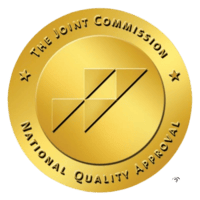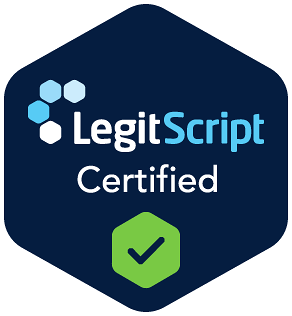The journey of addiction recovery often presents individuals with the challenge of managing anxiety, a frequent companion during the early stages of this process. A thorough, all-encompassing approach that incorporates self-care, exercise, diet, mindfulness, professional help, and supportive networks can act as an effective strategy for combating anxiety. However, the practical application of these strategies raises intriguing questions about the impact and the ways they collectively contribute to managing anxiety and preventing relapse.
Understanding Anxiety in Recovery
Anxiety, often a by-product of the healing process, can be attributed to a multitude of factors, making it a multifaceted issue that poses significant recovery challenges. Analyzing anxiety triggers is fundamental to managing them. They could stem from fear of withdrawal symptoms, anticipation of life changes, or concern over rebuilding relationships. The uncertainty of maintaining sobriety can also exacerbate anxiety levels. These triggers can create a vicious cycle, as anxiety itself can lead to cravings and potential relapse, further complicating the recovery process.
Insightfully, the presence of anxiety in early recovery is not merely a hurdle to overcome but an opportunity to cultivate resilience. Appropriate management of anxiety can be a catalyst for personal growth and self-discovery. Engaging therapeutic strategies can mitigate anxiety, transforming it into a manageable aspect of recovery. Understanding this relationship between anxiety and addiction recovery is essential. It allows individuals to anticipate challenges and address them, fostering a more successful and sustainable recovery journey.
Importance of Self-Care Practices
A pivotal aspect of managing anxiety in early addiction recovery hinges on the implementation of consistent self-care practices. Such practices provide an effective way of dealing with anxiety and fostering emotional wellness. The importance of sleep, in particular, cannot be overstated. Sleep serves as a regenerative process for the body and mind, reducing anxiety levels and enhancing mental clarity. When an individual fails to get enough quality sleep, it magnifies feelings of anxiety and negatively affects their ability to manage stress.
On the other hand, emotional wellness is another area that needs to be addressed. Practices geared toward emotional wellness, such as mindfulness, meditation, journaling, and therapy, can help individuals better understand and manage their feelings. These practices can provide a sense of calm, increase self-awareness, and promote healthier coping mechanisms. Prioritizing regular, adequate sleep is a key part of self-care in early addiction recovery.
Incorporating Regular Exercise
Building on the foundation of sleep and emotional wellness, regular exercise emerges as another important strategy for managing anxiety in early addiction recovery. Exercise’s benefits extend beyond the physical, offering profound mental and emotional advantages during this challenging phase. Engaging in regular workout routines allows individuals to release endorphins, which decrease anxiety levels, and aid in improving sleep quality, an essential component of emotional well-being.
Adopting a regular exercise regimen can also provide a sense of accomplishment and control. During early recovery, feelings of helplessness are common. Regular exercise, by providing a structured and predictable routine, can help individuals regain control over their lives. Exercise serves as a constructive distraction, helping to break negative thought cycles often accompanying recovery. It allows a focus on the present and the sensations during exercise, not dwelling on past regrets or future anxieties.
Tips for Healthy Eating Habits
Establishing a balanced and nutritious diet is an essential step toward managing anxiety in the early stages of addiction recovery. This strategy goes beyond dietary changes, incorporating nutritional education and planning. Nutritional education provides a solid foundation by aiding individuals in making informed food decisions, reducing the likelihood of resorting to unhealthy coping mechanisms. Addiction often disrupts normal eating patterns, making nutritional education vital in restoring a healthy relationship with food.
Diet planning provides a structured approach to eating, ensuring a balanced diet rich in nutrient-dense foods that support recovery and manage anxiety. Regular eating patterns can help stabilize mood swings, reduce cravings, and prevent the onset of stress, which often triggers relapse. Nutritional education, by informing these choices, proves to be invaluable for individuals navigating the complex territory of addiction recovery.
The Role of Meditation and Mindfulness
Exploring meditation and mindfulness reveals another potent tool for managing anxiety in early addiction recovery, offering a calming oasis in the tumultuous journey toward sobriety. These practices foster an internal space that encourages self-awareness and inner peace, reducing stress and anxiety levels. Guided visualization, involving creating peaceful images in the mind, can act as a refuge from recovery chaos, helping individuals visualize and reinforce their resolve.
Mindfulness teaches us to stay present, invaluable in early recovery by preventing individuals from becoming overwhelmed by future worries or past regrets, both common anxiety sources in recovery. Breath control techniques form an integral part of meditation practices, grounding individuals by promoting relaxation and regulating stress responses. These methods are essential in mitigating anxiety and aiding the overall recovery process.
Seeking Professional Help
While self-help techniques like meditation and mindfulness are essential, enlisting professional help greatly enhances anxiety management during early recovery stages. Professionals offer unique insights and tailored strategies addressing individual needs. Therapy extends beyond managing symptoms, helping individuals understand anxiety’s root causes and develop effective coping mechanisms. Additionally, therapists help identify triggers and build resilience, critical factors in relapse prevention.
Medication consideration is another aspect of professional help. While not suitable for everyone, medication can offer significant relief from severe anxiety symptoms. It is essential that medication is administered carefully under medical supervision to monitor side effects and adjust dosages. Professional help is integral to a thorough anxiety management strategy in early addiction recovery, complementing self-help measures and leading to a more holistic approach.
Building a Support Network
Creating a strong, empathetic support network is pivotal in managing anxiety during early addiction recovery. The presence of individuals who genuinely understand your struggles can provide comfort and guidance based on their experiences. Support groups, such as Alcoholics Anonymous, are peer-led sessions where individuals share experiences and coping strategies. This shared experience fosters community and acceptance, beneficial in reducing anxiety and isolation.
Peer-led therapy provides a platform to learn from each other, offering a safe, non-judgmental space for expressing fears and challenges. These sessions often lead to deep, understanding relationships, serving as a safety net during challenges. Building a support network is about having the right people supporting you emotionally and practically when needed most, emphasizing the importance of peer support in addiction recovery.

Final Thoughts
Managing anxiety during early addiction recovery necessitates a holistic approach that incorporates the following: Self-care, Regular exercise, Healthy eating, Mindfulness, Professional assistance, and A robust support network. By identifying and managing anxiety triggers, employing coping strategies, and nurturing emotional wellness, resilience can be heightened, and the risk of relapse diminished. Through this approach, anxiety can effectively be managed, enhancing overall well-being throughout the recovery journey.
At BlueCrest Detox, we’re dedicated to elevating you from the struggles of substance use to the peaks of recovery and resilience. Our expert team offers personalized, evidence-based treatment services tailored to support your unique journey toward healing. Reach out to us for the compassionate care you deserve on your path to wellness. Follow us on Facebook for ongoing support, insights, and inspiration on your recovery journey.
Frequently Asked Questions
What Are Some Effective Natural Remedies for Managing Anxiety During Addiction Recovery? Regular exercise provides substantial benefits in managing anxiety during addiction recovery, offering natural endorphin release. Additionally, a balanced diet positively impacts mental health, reducing anxiety levels and supporting well-being during recovery.
Does Medication Aid in Managing Anxiety During Early Recovery From Addiction? Yes, medication can aid in managing anxiety during early recovery from addiction. However, holistic methods, like reaping exercise benefits and participating in support groups, also play pivotal roles in maintaining mental wellbeing during this process.
How Can Pets Help in Managing Anxiety in Early Addiction Recovery? Pet assisted therapy and emotional support animals can be invaluable in managing anxiety during early addiction recovery. They provide unconditional love, companionship, and a sense of responsibility, which can greatly alleviate stress and anxiety.
What Role Does Spirituality Play in Managing Anxiety During Addiction Recovery? Spirituality, through practices like spiritual rituals and faith exploration, can play a significant role in managing anxiety during addiction recovery. It provides a sense of purpose, peace, and connection, aiding in emotional stability and resilience.
Can Engaging in Creative Activities Help in Managing Anxiety During Early Recovery? Engaging in creative activities like creative writing and art therapy can indeed aid in managing anxiety during early recovery. They provide therapeutic outlets for expression, fostering mindfulness and contributing to emotional stability.




